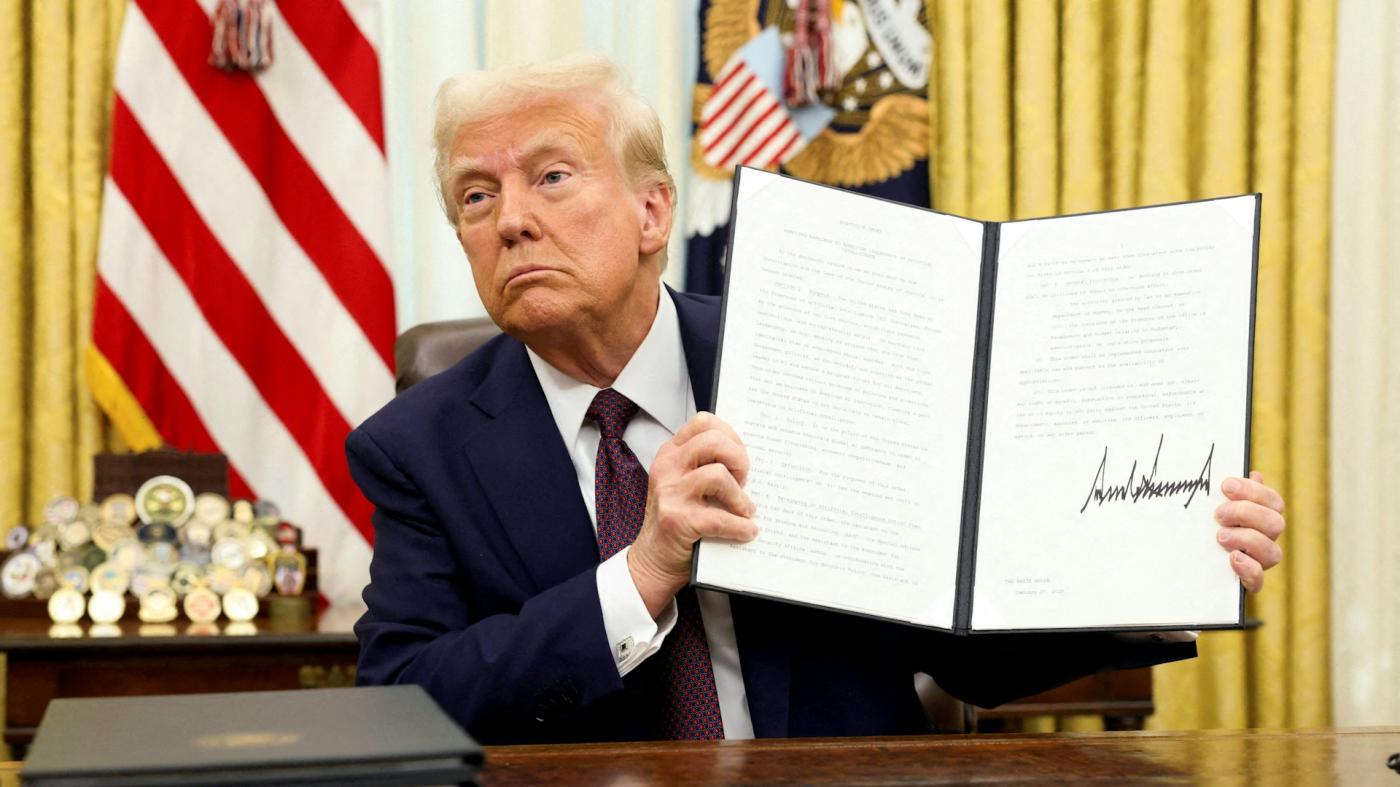Author: TechFlow

The market is a huge Christmas tree.
Yesterday, the market was still immersed in the good news brought by Trump's support for cryptocurrencies, but it had not been happy for a day, and BTC fell back to the starting point, wiping out the entire rally brought by Trump's voice, drawing a door that made the market uncomfortable.
But the market has finally grasped a straw to cling to and has not easily given up the possibility of digging out more good news for the market from Trump.
On the morning of March 4, Mike Alfred, the founder of Alpine Fox LP, tweeted that the Trump administration may announce a zero capital gains tax policy for cryptocurrency sales at the crypto summit on Friday.

As for Mike Alfred's claim that "Trump is preparing to announce a zero tax rate for cryptocurrencies", Adam Cochran, a partner at Cinneamhain Ventures, directly criticized: "Mike blocked me because I repeatedly verified his facts, but that doesn't stop me. The president cannot unilaterally amend the tax law. Only Congress can. This is one of the few minority powers of Congress explicitly stated in the Constitution. Even if the president announces the decision or tries to sign an executive order for it, it will not become law. This is no more effective than my claiming to be a cupcake."

Eliminating the cryptocurrency capital gains tax would be a big deal for the cryptocurrency market itself, market participants, and the US government.
The authenticity of such a major event is naturally the subject of much debate on social media.
Putting aside the market noise, let's first see what impact the crypto tax exemption would have on the market if it succeeds, and what factors would constrain it if it doesn't.
How are cryptocurrencies taxed now?
First, let's talk about the current situation. According to the Coinbase tax guide, in the US, cryptocurrencies are not "currency", the IRS (Internal Revenue Service) defines them as "property". If you buy BTC and sell it at a profit, that profit is subject to capital gains tax. The tax rate also depends on how long you hold the coins:

That is, if a US citizen bought $10,000 worth of BTC and sold it three months later for $20,000, making a $10,000 profit, that $10,000 net profit would be taxed at the ordinary income tax rate (10% -37%), possibly losing a few thousand dollars. If you held it for a year before selling, the tax rate would be lower, maybe just a thousand or two, or even tax-free if your income is low. But taxes are inevitable in any case.
Of course, it's not just trading, the ordinary income tax on cryptocurrencies applies to mining, staking, wage payments, airdrops and other activities involving cryptocurrencies, and individuals need to report the fair market value at the time of receipt and pay taxes at the ordinary income tax rate (10% -37%).
What if it's really zero capital gains tax?
Assuming Trump really cancels the capital gains tax on crypto assets, what impact would that have? Putting aside the high-level analysis, let's talk about how the market and ordinary people would fare.
For the market, the removal of tax restrictions would naturally embolden more hot money in the US to invest, and short-term trading behavior would increase due to the lack of tax restrictions, amplifying short-term market volatility. More crypto project teams would also be attracted by the zero-tax policy, with major projects migrating to the US, making the US the "crypto asset capital" that Trump promised.
However, letting the market off the hook is essentially letting the government take a hit, losing the tens of billions of dollars in crypto taxes it collects each year, and the government's public budget would have to be recalculated, with infrastructure, healthcare and other expenditures potentially having to be squeezed from elsewhere. If you're an ordinary US taxpayer who doesn't touch cryptocurrencies, knowing that the wealthy speculators are tax-free while you still have to pay income tax honestly, you can't help but feel a sense of imbalance.
In short, if the current US crypto capital gains tax doesn't affect you at all, the (potentially) tax-free policy may or may not have an impact on your personal crypto asset earnings, and it's not appropriate to simply describe it as a positive or negative.
Rumors abound, but will it ultimately succeed?
There have been related news reports about changes to cryptocurrency taxes before. In January, The Street reported that Eric Trump, a son of Trump who is passionate about participating in crypto activities, confirmed that top US crypto projects like XRP and HBAR will enjoy zero capital gains tax treatment, while non-US projects will face capital gains tax of over 30%.

Dennis Porter, co-founder of Satoshi Action Fund, said that completely eliminating crypto taxes is unrealistic in the short term, but changes like "minimum exemption" are worth fighting for.

So, no matter how loudly the slogan is shouted, tax laws are not decided by Trump alone.
The US Constitution stipulates that changes to tax policies must be approved by Congress, and even if the Republican Party supports it, the Democratic Party may not.
Moreover, the US local tax system is complex, with varying policies in different states, and how to unify opinions is a lengthy issue.
Conclusion: Dreams are good, but perhaps we'll have to wait
Looking solely at the cancellation of the cryptocurrency capital gains tax, it is an incredibly wonderful wish for the vast majority of market participants. If it comes true, it will certainly be able to pull the currently struggling market back up and fight again. But returning to reality, the market changes and a series of social problems brought about by the zero-tax rate are hurdles that policymakers cannot avoid, so this wish may only be able to be held in expectation in the short term.
In the author's view, this is more like one of the many big pies drawn for the crypto market, looking delicious, but whether it can be successfully eaten in the end depends on the mood of Congress. For us ordinary investors, we can dream, but we also need to keep our wallets tight, not to go "All In" on our future just because we hear a little wind.







